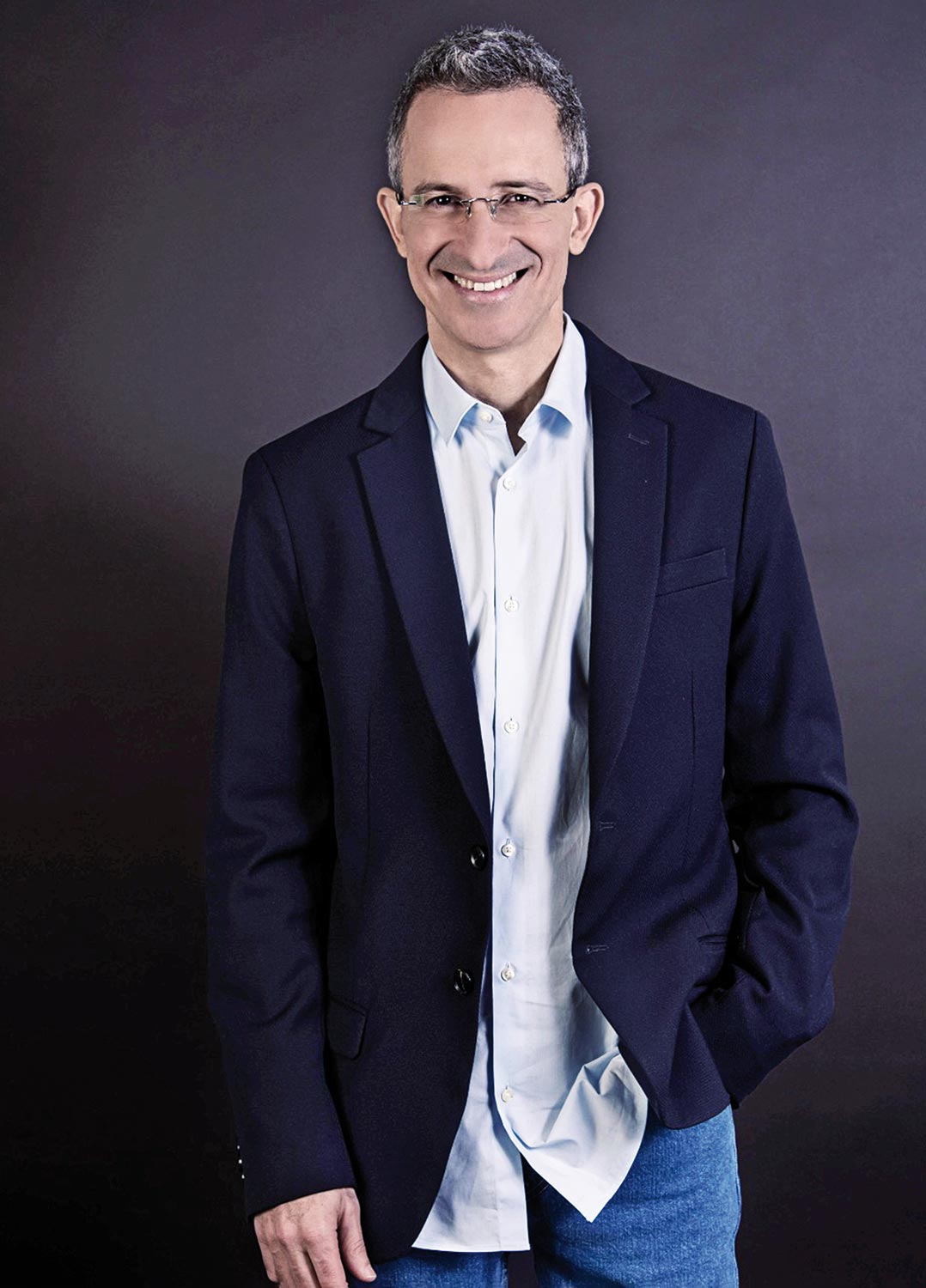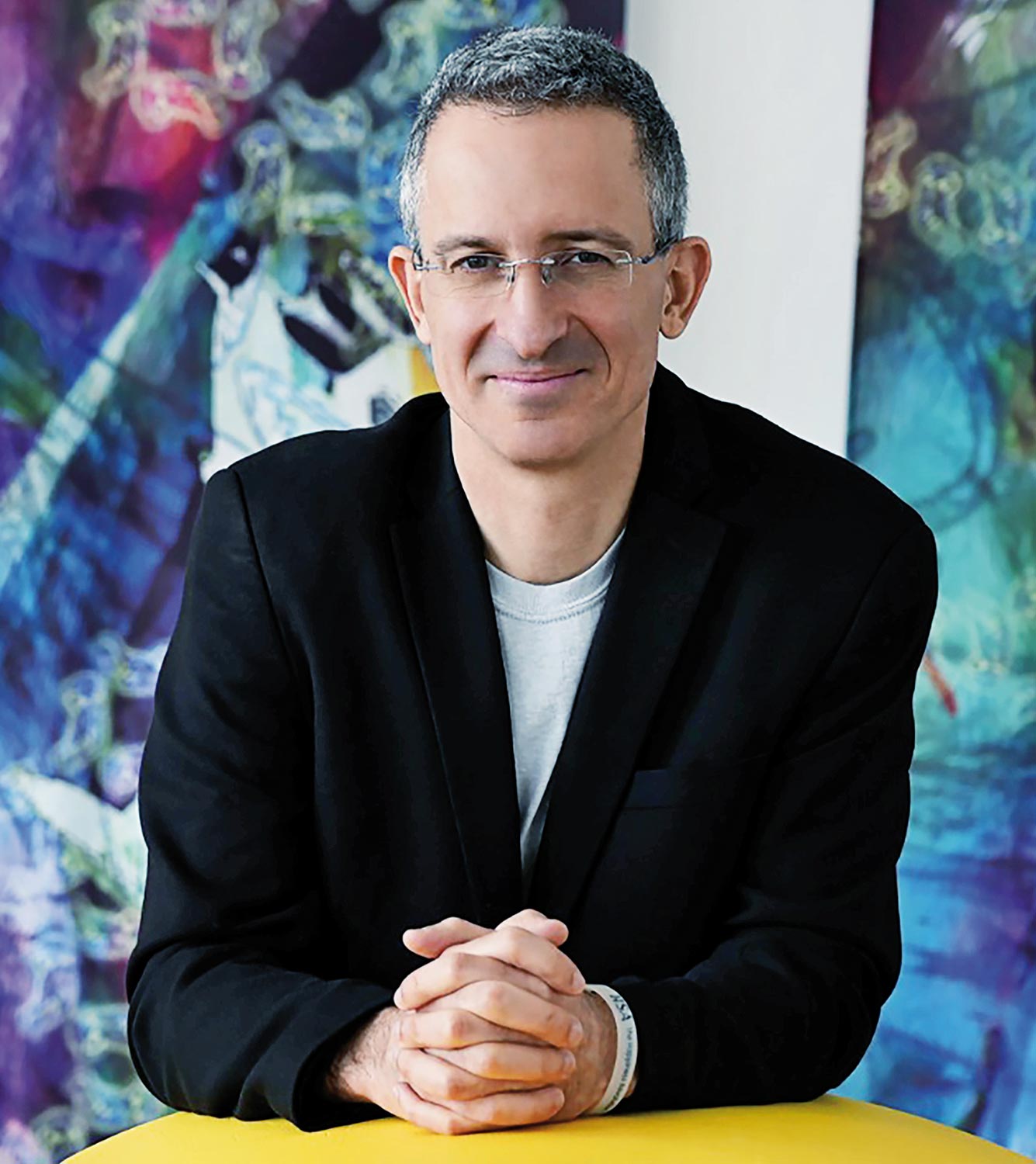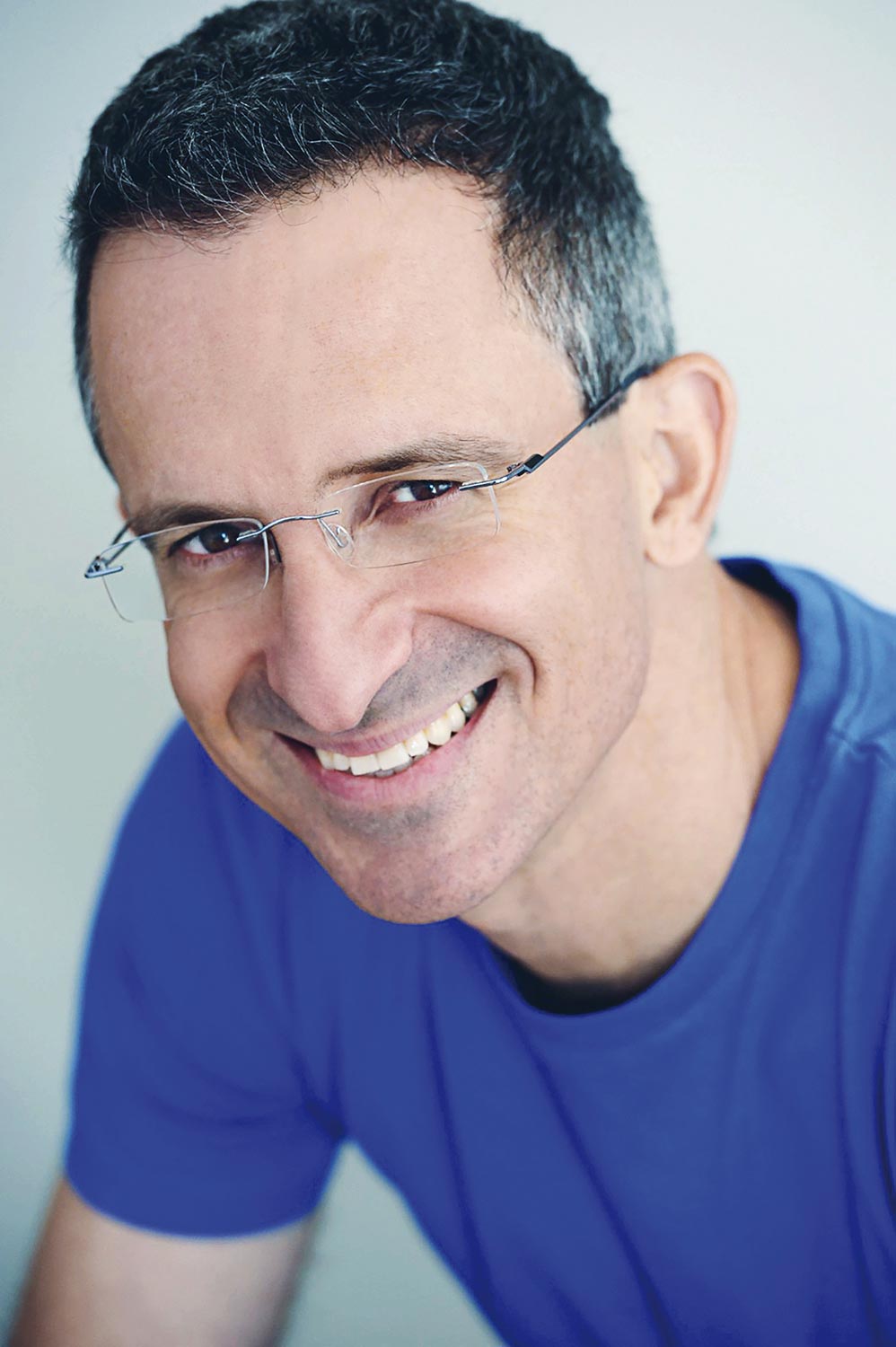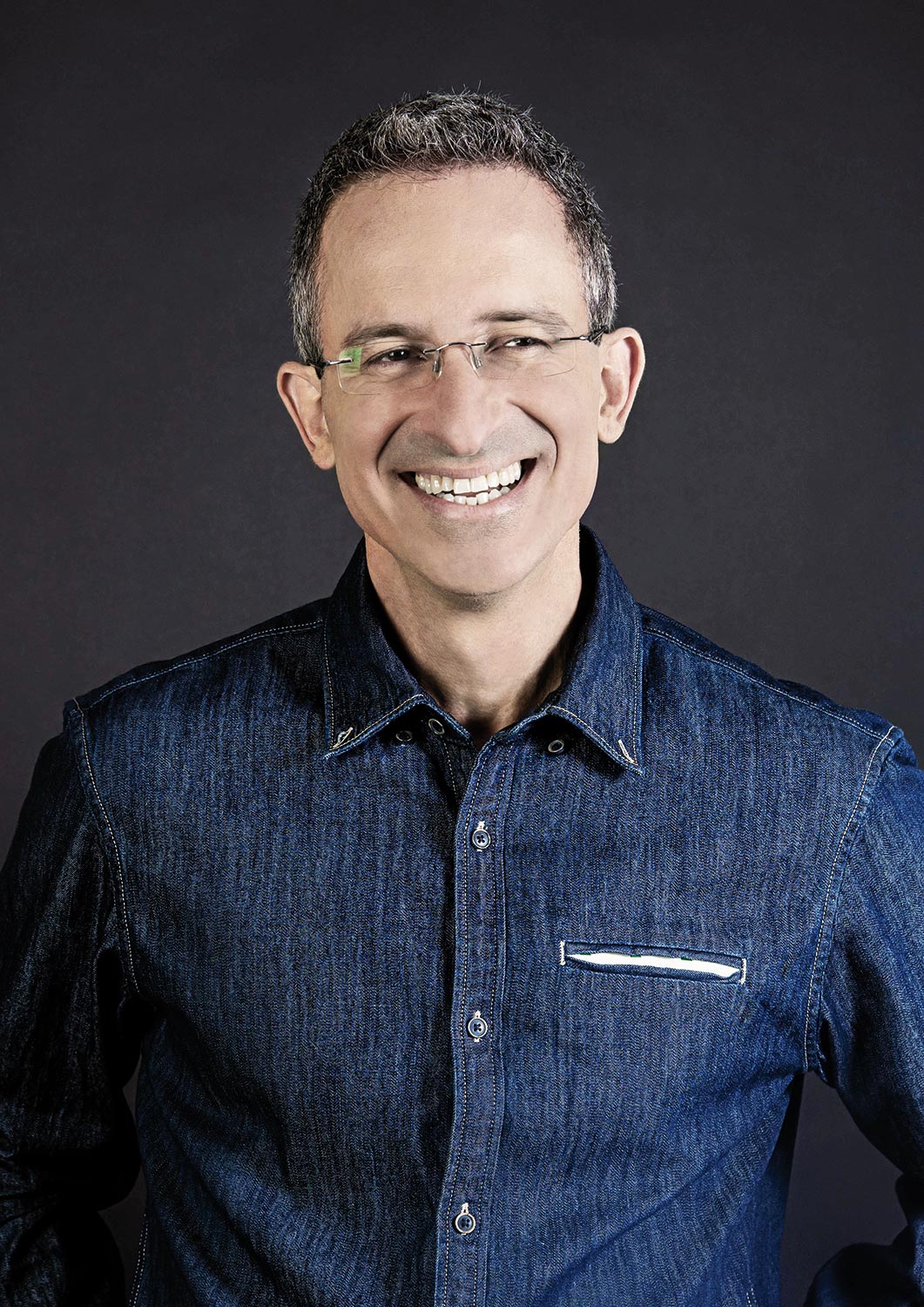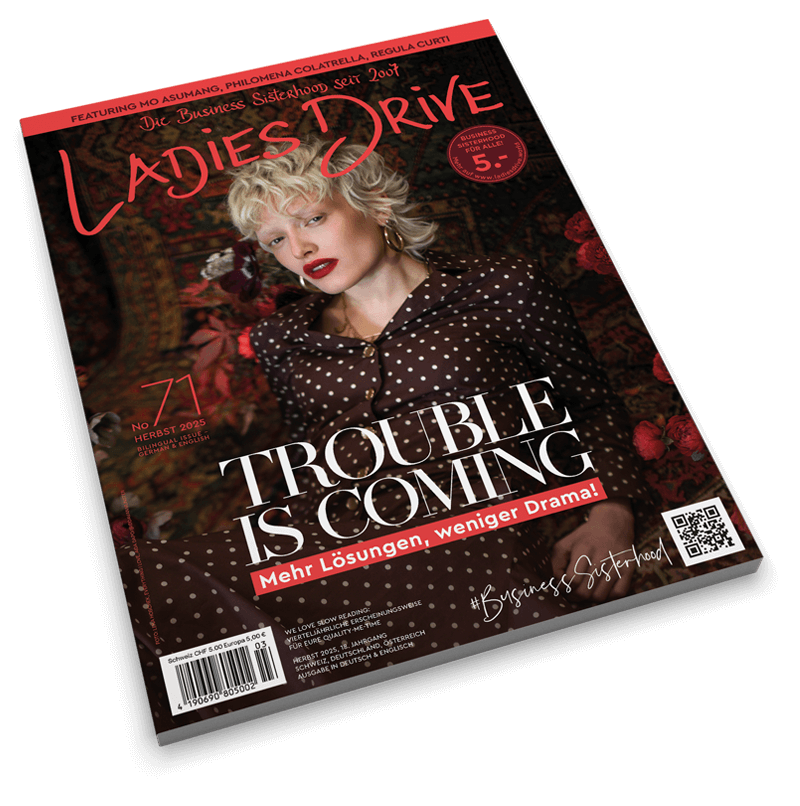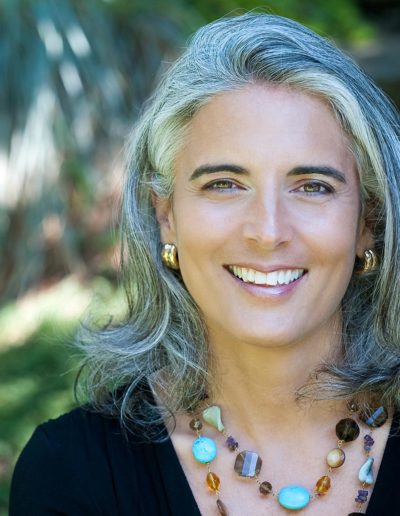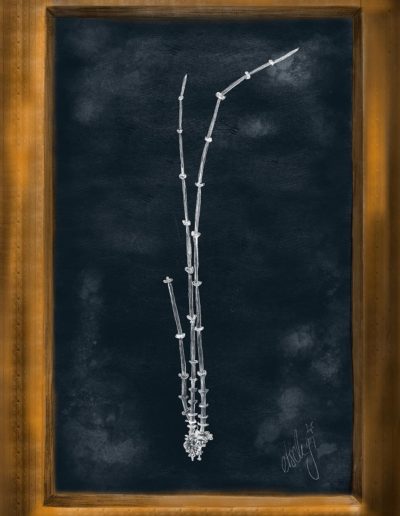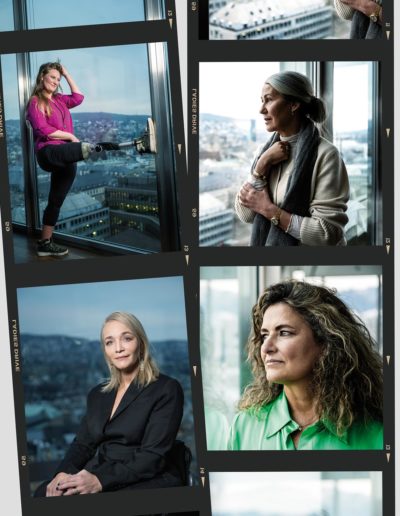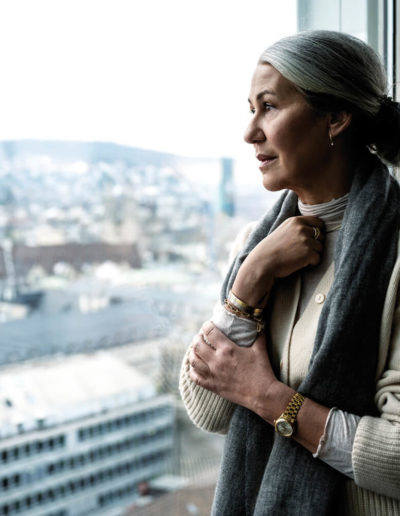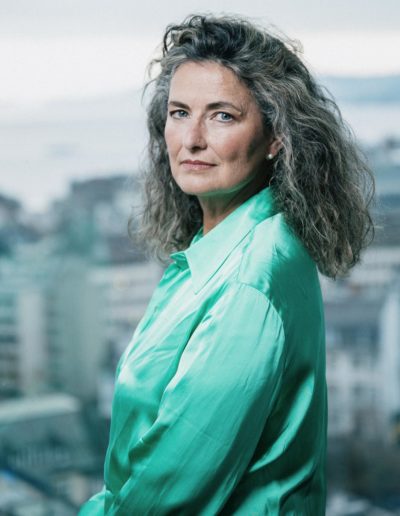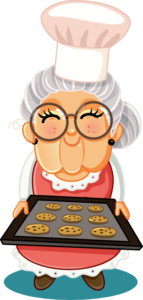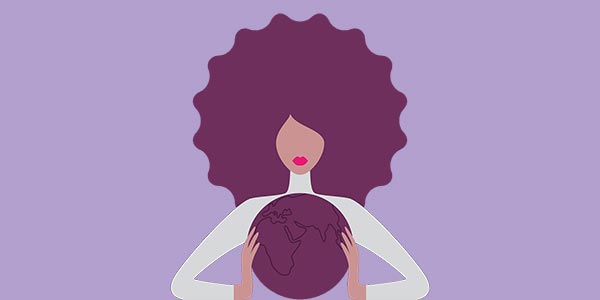It opened up a whole new world about Post Traumatic Growth for me – and inspired me and my whole team not only to have this Ladies Drive issue, dedicating all these interviews and analysis to the topic but also to have it as our main theme for the League of Leading Ladies Conference 2023.
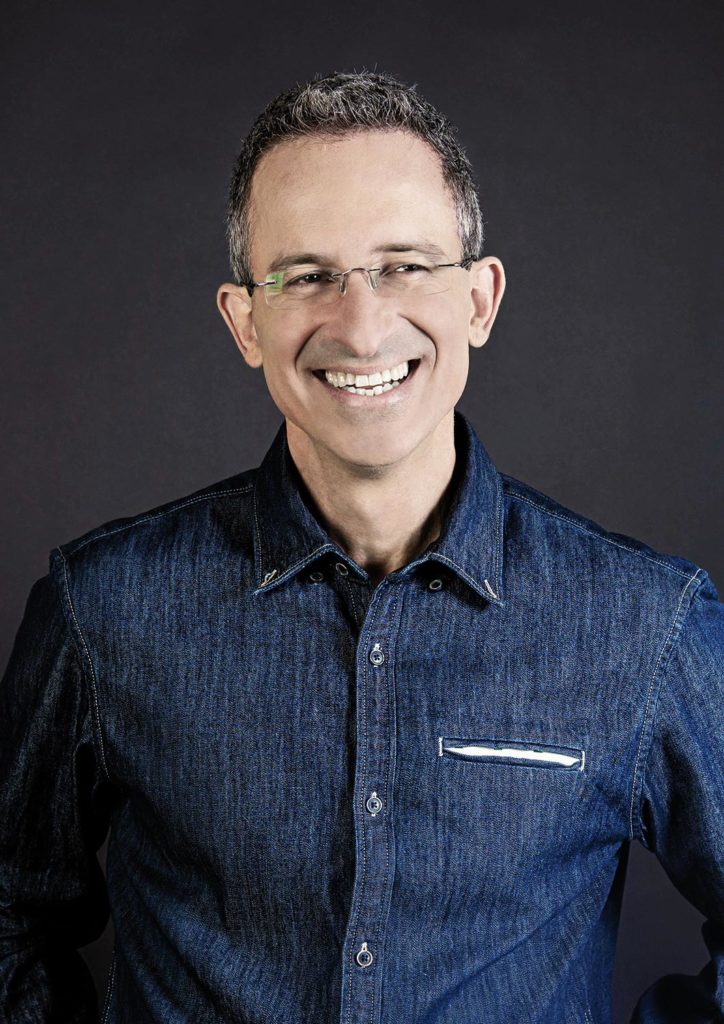
But who is Tal Ben-Shahar? – He is an American-Israeli teacher and writer in the area of positive psychology and leadership. At Harvard he taught two of the largest classes in Harvard University’s history. Tal’s books have been translated into more than thirty languages and appeared on many best-sellers list around the world. In his books he shares insights about personal happiness: the overall feeling of pleasure combined with meaning.
The more I read about Dr. Tal Ben-Shahar, the more my wish grew to introduce him to my community. Ladies & Gentlemen – here we go!
Interview by: Sandra-Stella Triebl
Ladies Drive: When did you have your last crisis or trauma?
Tal Ben-Shahar: So, you’re not easing into it, you’re jumping right to it.
Sorry for that. I’m not very Swiss at the moment…
The question is, do you mean by “trauma” a life changing trauma or a small trauma? Capital “T” Trauma or small “t” trauma…?
Capital „T“.
Capital T Traumas, I haven’t had too many of them throughout my life. So, I’ll just pick one major one, which for me was big. My best friend died in a plane crash. This was on December 19, 1997. I was living in Singapore at the time, waiting for my friend to arrive from Jakarta, Indonesia. And the plane plunged from 30,000 feet into the swamps of an Indonesian island. That was of course traumatic, life changing. My best friend, the closest person to me in the world at that time. And it rocked my world. I remember a few things about it. One is how I didn’t want to go on living then. I wasn’t suicidal, I had people in my life whom I cared for and who cared for me. So, I knew I wouldn’t do that. But I had no will to live. I would just go through the days mechanically, hardly sleeping at night, and then just sleep walking throughout the day. When it happened, I called up one of my teachers, Nathaniel Branden. Earlier in his life he had lost his life partner in an accident. And so, I called him up both because he had that experience and also because he was my mentor. He said to me the following: “Tal, the next few months or longer are going to be hell. You’re going to struggle; you’re going to suffer. However, you’re going to get over it. Because we all do. Because if we hadn’t, then God help us all.” And these were reassuring words. While the suffering continued, his words generated a glimmer of hope within the harsh reality. And not at that time, but today, one of the sentences that I repeat over and over again to myself, to my students, is:
The difference between sadness and depression is that depression is sadness without hope.
So, at that time he gave me a little bit of hope and the reassurance that this too shall pass. And it did. Very slowly. Today, when I think about that experience, it of course saddens me to have lost my best friend, but at the same time I can also be grateful for the time that we did have together.
(Silence)
Thank you so much for sharing that. Hearing this from you helps us to understand that we all have such experiences. Sometimes just by knowing that, that you’re not the only person who has gone through a traumatic experience, does help.
There’s a very important point that you bring up here. You obviously know the German word “Schadenfreude.” And that has negative connotations. Being happy at the misfortune of others. But there is another experience which may look like Schadenfreude and sound like it, but it’s very different. When I encounter the misfortune of others and feel better, it’s not just because I’m happy that they’re unhappy. It’s something else, it’s that I no longer feel alone in my suffering – it normalizes my suffering. And that’s a good thing. Sometimes experiencing relief when we learn about others suffering, it’s simply about relief that I’m not alone and that what I’m experiencing is normal.
Could you grow after that trauma? And if yes, on what kind of levels or layers?
When it comes to traumatic experiences, the one thing that they do is they change us. And in fact, they change our brains. Our brain structure changes as a result of traumatic experience.
How does our brain change?
There are two ways to change the way our brain is structured, the way our neural pathways function. One is slowly, gradually. For example if I pick up tennis and I hit a tennis ball once, twice, a thousand times, then a neural pathway is going to be created in my brain that is going to grow bigger and bigger, wider and wider. To the point where that forehand that I’ve hit thousands of times becomes automatic. I no longer need to think about it. And it’s the same for any skill that I develop. The research on taxi drivers in London shows that when they studied the map of London and they studied it for a long time, repeating the same names of streets, learning the same structure of a map – over time that part of the brain associated with visual learning, actually grew. So, this is the traditional way of changing our brain. Another way of changing our brain is the fast and furious way. And that is through experiencing a trauma. If someone for instance is abused as a child, their brain at that moment changes. Parts of it shut down, it rewires – in order for them to survive that abuse. If someone is in war and perceives some horrible scenes, has some heart wrenching experiences, their brain will change at that point. When we lose someone, especially unexpectedly lose someone who is very dear to us, at that point our brain can change and can change permanently. The question is not whether change happens as a result of the trauma. The question is in which direction we’ll change. Meaning, will we grow stronger, or will we break down? Now, there’s a lot of literature, there’s a lot of conversation about breaking down as a result of trauma. It’s called PTSD, Post Traumatic stress disorder. And when I ask my students whether they’ve heard of PTSD or audiences in my lectures even if they are not psychologists, most people have heard about this. But then the opposite can also happen. We can also grow from trauma. That’s called Post Traumatic Growth (PTG). And when I ask my students, who are psychologists mostly, or the general audience, whether they have heard of PTG, most of them have not. And here is the thing, Post Traumatic Growth is potentially twice as likely as Post Traumatic Stress Disorder. So again, we’re going to change as a result of the trauma. The question is, are we going to break down or are we going to build up? Are we going to experience PTSD or PTG? If, and this is a very big if, first we know of the possibility of PTG, so just knowing that growth is possible following trauma, makes it more likely to happen. Just the fact that Nathaniel told me: “You’re going to get over it, you’re going to get through it”, just that contributed to my getting over it. Second, we need to know what conditions to put in place. Because there are certain conditions that we can put in place that increase the likelihood that we will experience PTG. Without these conditions we are more likely to break down and experience PTSD. What are these conditions? For example, embracing, accepting the emotion. Not fighting it, just allowing ourselves to cry, to feel down…
To feel it in the first place, right? To be vulnerable.
Exactly. As Kristin Neff says: “The only way out is through.” So first, going through the emotion is critical. Second, other people, reaching out to other people. Relationships, supportive relationships are important if we are to increase, not guarantee – nothing can guarantee it, but increase the likelihood of PTG. Third, physical exercise. Turns out it matters a lot for our ability to overcome psychological hardship. Because there is a strong connection between mind and body. And therefore, there is a strong connection between mental toughness and physical toughness. Fourth, helping others, giving, being generous and kind, that contributes to the likelihood of PTG. Introducing these, and other conditions, in our life following a trauma can significantly increase the likelihood of us experiencing PTG. I want to make something very clear here, I’m not glorifying trauma in any way.
That would have been my next question!
It’s not that we need to welcome pain and suffering into our life.
Trauma is a terrible thing. And I wish people weren’t abused and I wish people hadn’t lost loved ones and I certainly wish there were no wars in the world. However, these things exist. And they will probably continue to exist in the foreseeable future. So, the question is not whether or not these traumas happen. The question is what do we do with them when they do happen. A few years ago, I gave a lecture to students about the very difficult economic situation and how finding jobs today is much more difficult than it was even a year or two ago and how they’ll need to struggle in the new workplace. And at the end of my talk, one of my students raised his hand and said “Tal, you’re our happiness professor, and yet for the past 20 minutes you’ve been talking about unhappiness. You teach us optimism and yet you’ve been talking about nothing but pessimism. Anything optimistic, anything happy you can tell us?” And I was about to say to this student: “Things happen for the best.” But before I opened my mouth, I realized that I actually don’t believe that. And I said to him that I’ll get back to him on this question. And three days later I found him in the dining hall, and I said to him: “I have an answer for you. Things do not necessarily happen for the best. But we can choose to make the best of things that happen.”
So, it’s a choice?
Yes. Because “things happen for the best” is blind, and I would argue, detached optimism. The fact that we can make the best of things that happen is grounded optimism, connected to reality.
May I ask – how could you grow after the traumatic experience that you just shared?
First of all, I would do anything to have my friend back. I don’t think it happened for the best, not even today 25 years later. But I did grow as a result, in that I have become more empathic and sensitive. Because I know what it’s like to lose someone who is very close to you, and I know what it’s like to lose them unexpectedly. You know, I lost my grandparents, but they were old, and they lived a full and fulfilling life and I was devastated when I lost them but it’s not the same thing. So, I have become more empathic and sensitive towards other people’s losses and other people’s pain in general. Secondly, I also have become more acutely aware of the importance of the field of positive psychology or the science of happiness. Because very often people say things like: “Oh, the science of happiness, positive psychology, that’s just for good times when things are going well.” Well, that’s not true. Because I and many others have found real solace and real support through the science of wellbeing in very difficult times. So, when people say to me today: “How can this field help people living in poverty? Or how can it help people now in war zones?” Then, I have two answers. The first answer: positive psychology, the science of happiness is not a panacea. In other words, it doesn’t help everything and everyone. First and foremost, let’s try and end war, let’s try and end poverty. That’s more important. However, let’s say we are in those difficult situations. There are still things that we can do that may even slightly help our situation, even slightly make our lives better, make us more resilient, stronger, better able to deal with hardships.
You said something before that I really liked. If you think something is possible, you open up a window of hope, like you put it before?
Absolutely. So much of how we live right now is a result of our expectations from yesterday. If I’m a pessimist and I say to myself, I really dislike my work and given that I’m a pessimist, that is how it’s going to stay. In other words, it becomes a self-fulfilling prophecy. But if I’m an optimist, and again, not a detached optimist but a grounded optimist, and there is a very big difference which I’ll explain in a minute. If I’m an optimist, I will say to myself: “Okay, things are not going really well at work. I’m unhappy. However, things will get better because in the past they have been better, because in the past I’ve overcome experiences like this.” Now, the important thing is to be grounded in my optimism, which means being prepared to do the work. Because if I just say to myself: “Things are going to get better.” And then I lie down in front of the TV for three months and do nothing – that’s a problem. Things are unlikely to change and get better. In fact, they are going to get worse. But if I do something about it, try things out, experiment with new ways of being or thinking or doing, then I’m much more likely to get out of that situation, out of the rut, out of the mud. And find a better place, internally and externally.
So, it’s also like what people call the law of attraction, right? It goes into the same direction, right?
Yes. It is what people call the law of attraction. But I must add something here. Because the law of attraction, as it’s presented in the self-help literature, is generalized and is problematic. Because what it says is that basically we invite everything in our lives and that’s not true. People don’t invite an accident; people don’t invite a chronic illness or a terminal illness. Now, our mind does matter, does affect our body, of course. But sometimes things just happen. As Freud once said, “Sometimes a cigar is just a cigar.” Sometimes a backache or cancer or an accident just happened because we were unlucky, wrong place, wrong time, genes, external circumstances. And attributing everything to the law of attraction puts unnecessary guilt and impossible expectations on people. And that in the long term will lead to unhappiness and poor health. Not to flourishing.
Because you just quoted Freud – Jung said that we should embrace our dark side, because we can learn so much from that.
He did indeed. And one of the main ideas that I talk about in my classes and one of the main messages that I communicate to myself, is the importance of embracing that dark side. The importance of giving ourselves the permission to experiencing the full range of human emotions. The painful and the pleasurable.
Why is it so important to experience the full range?
Because as Jung put it, what you resist, persists. In other words, if I do not accept the dark side, if I do not accept my sorrow or if I don’t accept my anxiety, then the sorrow and anxiety will grow. The minute I tell myself something like: “Tal, you shouldn’t experience sadness, you’re the happiness professor.” The minute I say that, my sadness skyrockets. Or the minute I say to myself: “Tal, you shouldn’t be envious, jealous of your best friend. You’re better than that.” Immediately my jealousy, my envy rises. Paradoxically it’s when we accept and embrace these emotions, these experiences that they do not overstay their welcome. That is when they leave just as they came. And when we resist them, they actually end up persisting a lot longer.
Do you find it easy to accept your dark side?
No. I don’t, and I have not encountered anyone who finds it easy. Because it’s unpleasant. Because it’s dark. And we prefer pleasant and light.
But who said that life is only a pleasant thing?
Life is not. But our innate mechanism is that we want life to be pleasant. We seek joy and we avoid pain. We want to be happy; we want to avoid unhappiness. At the same time, we remind ourselves when we’re feeling down, when we’re experiencing our dark side, A) that it’s natural, B) that, too, shall pass and C) that we can actually grow and learn from these experiences.
So, to summarize it, is pain the answer?
Pain is not the question; pain is not the answer. Pain is inevitable. It’s like the law of gravity. The only question is what do we do with it. With the law of gravity, we can just resign to being ground-bound or we can invent and manufacture flying machines. With pain we can simply let it be – or we can use it as a tool for personal growth.
That’s just perfect. Thank you so much for this conversation and your incredibly helpful insights and words!
There’s no perfect, Stella.
The conversation is kind of perfect.
It’s good enough.
No, it’s not good enough, it’s really good – and it’s almost perfect.
I’ll take that.
(Laughter)
www.en.wikipedia.org/wiki/Tal_Ben-Shahar
